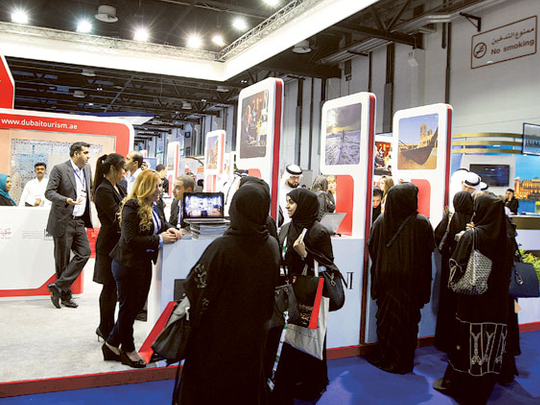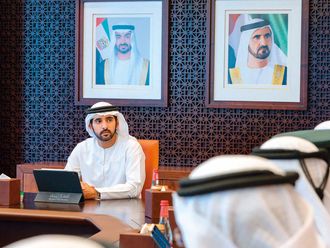
Dubai: Many Emiratis can be “resistant” to the idea of serving people, causing them to overlook job opportunities in the hospitality sector and undermining the importance of their presence in sustaining tourism in Dubai, a senior official said at Careers UAE 2014.
According to a report published earlier this year by the Federal Authority for Government Human Resources (FAHR), the hospitality sector is one of the five key industries that are likely to grow as a result of Dubai hosting Expo 2020.
The report read that since 25 to 30 million people are expected to visit during the expo, 90 per cent of the jobs available will be in the travel and tourism sector.
Ebrahim Yaqoot, Executive Director of the Corporate Support Sector at the Department of Tourism and Commerce Marketing, said Emiratis working in hotels are vital for the sustainability of Dubai’s tourism.
“Ten years ago only 11 Emiratis worked in hotels while today there are 3,161. Among the reasons for this increase is salary growth, as they used to offer Emiratis around Dh2,000, while today an Emirati can earn around Dh16,000 from working in hotels.”
Yaqoot said one of the challenges faced in the Emiratisation process is changing young people’s mindsets regarding the hospitality sector so that they can carve out their career path.
‘Challenges’
“To grow in the industry, you must know the basics, how to serve, how to hold a tray. Many Emiratis might be resistant to this and this can be among the challenges we face in the Emiratisation process.”
The department of tourism is looking to increase the number of Emiratis by 15 per cent every year. To get more Emiratis to work in the industry, Yaqoot said the department pays regular visits to schools and universities to explain to Emiratis how important the tourism sector is for Dubai’s GDP.”
As for women’s presence in the industry, he said there are many women among the 3,161 Emiratis, who have a special touch in the field of hospitality. “We try to give them morning shifts and keep them away from areas that might be socially unacceptable such as bars and clubs, so that they can work in a comfortable and socially acceptable environment.
To find out Emirati youth’s views on the issue, Gulf News spoke to Emiratis who were looking for jobs at the fair.
“My cousin works at the Burj Al Arab. I think it is a cool job in the sense that she gets to meet celebrities, but it is a lot of hard work. I am getting married soon and I don’t think it is suitable for a married woman to work in a hotel,” said Aisha Al Ali.
Ahmad Obaid, another Emirati who was looking for a job, said he would not consider hotel work.
“I didn’t study business management for four years to work on a reception desk or for the room service department. I am just not into hospitality and would rather work in my field,” he said.












